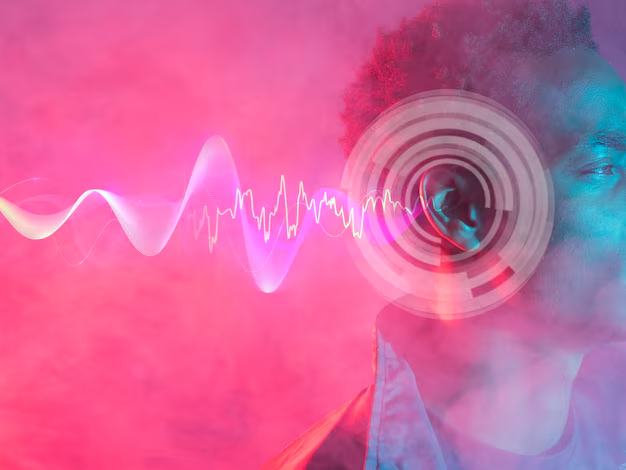Music is a universal language that transcends cultural, linguistic, and geographical boundaries. From the moment we are born, we are surrounded by sounds and melodies that influence our emotions and experiences. Whether it’s the rhythm of a heart beating in the womb, the soothing lullabies of a parent, or the powerful symphonies that fill concert halls, music plays an integral role in shaping our emotions, enhancing our moods, and even impacting our mental and physical health.
The Emotional Power of Music
At its core, music has a profound ability to evoke emotions in listeners. The emotional impact of a song or piece of music is linked to its rhythm, melody, harmony, and lyrics. These components can trigger a range of feelings, from joy and excitement to sadness and nostalgia. Studies have shown that listening to music can release dopamine, the “feel-good” chemical in the brain, similar to the effects of eating food or engaging in pleasurable activities. This explains why music often makes us feel euphoric, calm, or reflective, depending on the tune.
Music can serve as a mirror to our emotions. When we’re feeling down, we might turn to a melancholic ballad that mirrors our sadness, allowing us to process our emotions in a healthy way. Conversely, an upbeat song might lift our spirits when we’re feeling low, offering comfort and a sense of connection. The connection between music and emotion is one of the reasons why music therapy is a widely used treatment for individuals dealing with mental health issues like depression, anxiety, and PTSD.
The Role of Music in Memory and Nostalgia
One of the most fascinating aspects of music’s emotional power is its ability to unlock memories. Just a few notes of a familiar song can transport us back to specific moments in our lives, triggering vivid memories and the emotions associated with them. This phenomenon, known as musical nostalgia, explains why certain songs can evoke powerful memories of our childhood, our first love, or significant milestones in our lives.
Psychologists have long known that music has a special relationship with memory. The brain’s hippocampus, responsible for memory formation, is closely connected to the auditory processing centers. This allows music to serve as a potent cue for recollecting experiences and emotions tied to them. For instance, hearing a song from our high school days may bring a rush of emotions, like the excitement or heartbreak we felt back then.
Music’s Impact on Mental and Physical Health
The relationship between music and emotions isn’t just psychological; it also has significant physical effects on the body. Research has shown that listening to music can help reduce stress by lowering levels of the stress hormone cortisol. It can also improve sleep, boost immune function, and even enhance cognitive performance.
Certain types of music are particularly beneficial for relaxation and stress relief. For example, classical music, especially compositions by Mozart or Beethoven, has been found to have a calming effect on the nervous system, promoting a sense of peace and tranquility. On the other hand, more upbeat genres like pop or dance music can elevate energy levels, motivating individuals to engage in physical activity and stay active.
Moreover, music has been found to improve mood regulation in people with mental health conditions. For example, patients suffering from depression may experience a reduction in symptoms through music therapy, as the structured use of music can help process difficult emotions in a safe and controlled manner.
The Social Connection of Music
Music is not just a solitary experience—it often brings people together. Think about how music plays a central role in social events such as weddings, parties, and concerts. Through shared musical experiences, people form bonds, create lasting memories, and connect on a deeper emotional level.
The communal aspect of music is also seen in cultural and religious rituals, where songs are used to unite communities, tell stories, and express collective identity. From ancient tribal chants to modern-day pop anthems, music continues to be a social glue that fosters connections and promotes a sense of belonging.
The Therapeutic Potential of Music
As a form of therapy, music has been proven to help people manage emotional challenges and improve their overall well-being. Music therapy is used in clinical settings to treat a variety of conditions, including autism, dementia, and neurological disorders. By incorporating music into treatment plans, therapists can help patients improve their emotional expression, enhance their motor skills, and communicate in ways they might not otherwise be able to.
Music therapy is also widely used in palliative care to provide comfort to individuals with chronic illnesses or those nearing the end of their lives. The soothing nature of music can ease pain, reduce anxiety, and provide emotional support during difficult times.
FAQs
- Why does music make us feel emotions?
- Music affects the brain’s reward system, releasing dopamine, which triggers emotional responses. Its rhythm, melody, and harmony can evoke a range of emotions, from happiness to sadness.
- Can music help reduce stress?
- Yes, music has been shown to lower cortisol levels (the stress hormone), helping to reduce stress and anxiety. Calm music, like classical pieces, is particularly effective.
- Why do we feel nostalgic when we hear certain songs?
- Music is closely linked to memory and emotions. The brain’s hippocampus, which is involved in memory recall, reacts to familiar melodies, triggering memories and emotions tied to specific moments in time.
- Can music improve mental health?
- Yes, music therapy is often used to treat various mental health conditions, such as depression, anxiety, and PTSD. It can improve mood, provide emotional relief, and help individuals process difficult feelings.
- What role does music play in social connections?
- Music brings people together, whether through shared experiences at concerts, social gatherings, or cultural rituals. It fosters community and strengthens bonds between individuals.
- How does music affect physical health?
- Music can lower blood pressure, reduce stress hormones, improve sleep, and even enhance cognitive performance. Upbeat music can also motivate physical activity.
- What is music therapy?
- Music therapy is a clinical treatment that uses music to address emotional, cognitive, and physical challenges. It can be used to improve mood, communication skills, and motor function, among other benefits.
Conclusion
Music is an integral part of the human experience, shaping our emotions and influencing our physical and mental well-being. Whether it’s a song that brings back cherished memories, a melody that calms our nerves, or an anthem that unites a community, music is a powerful force in our lives. It offers a soundtrack to our personal journeys, reflecting the range of emotions we experience and helping us navigate through them.




